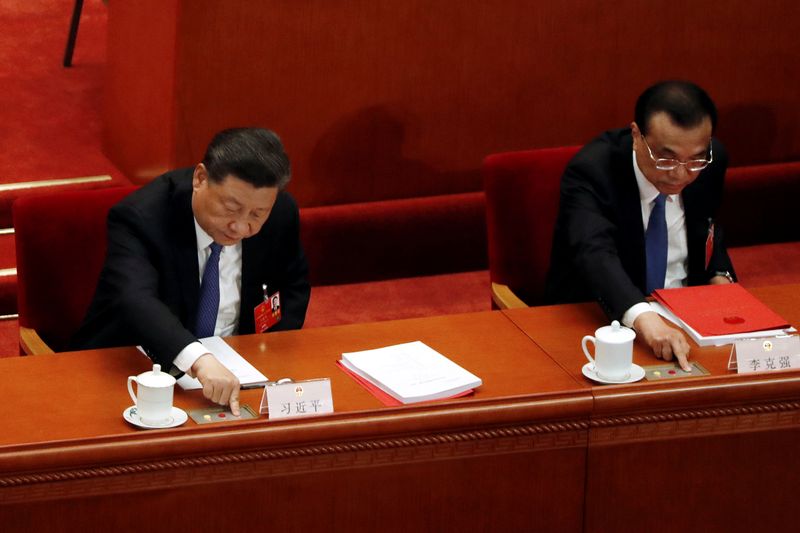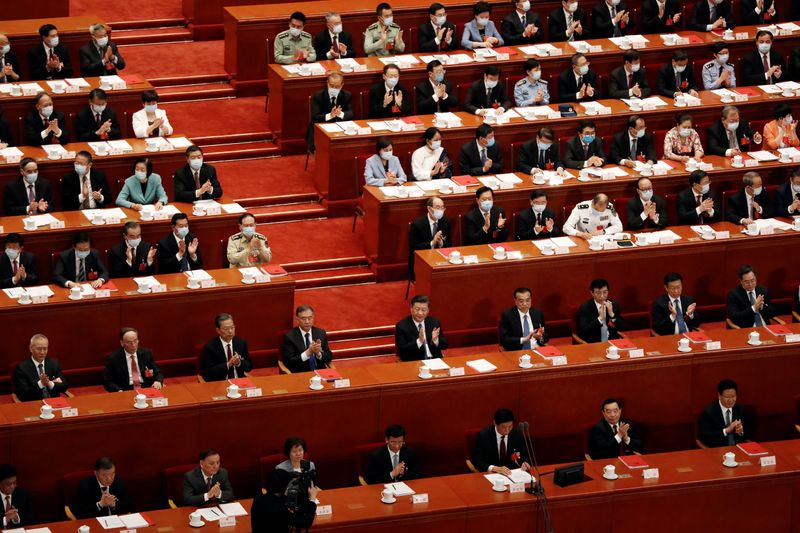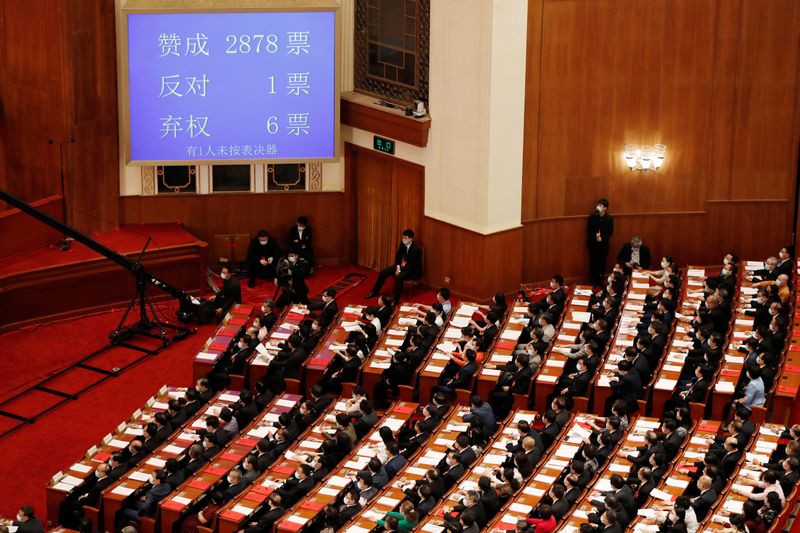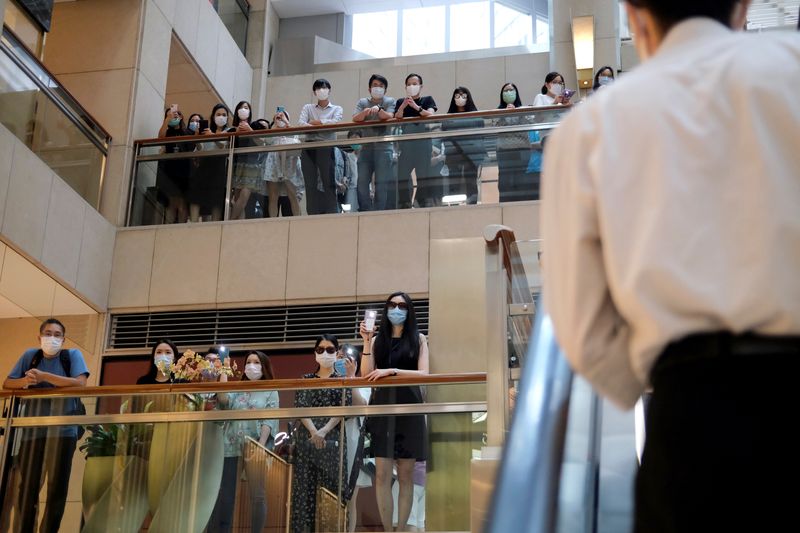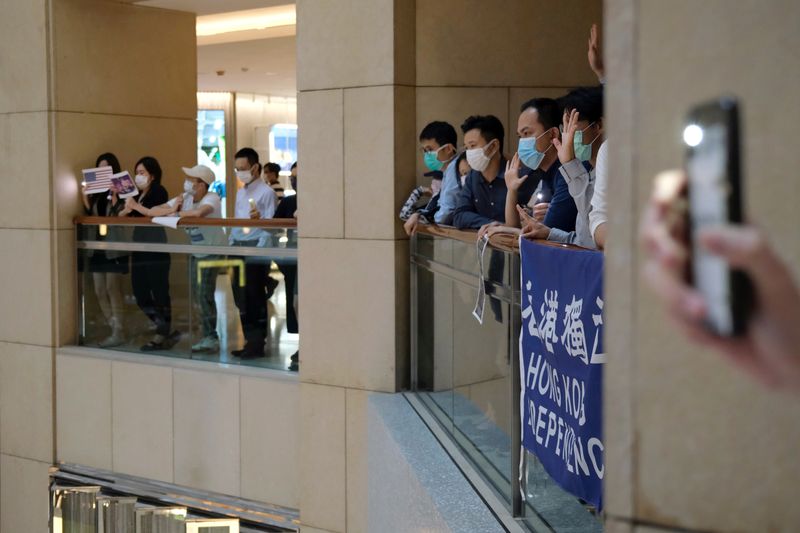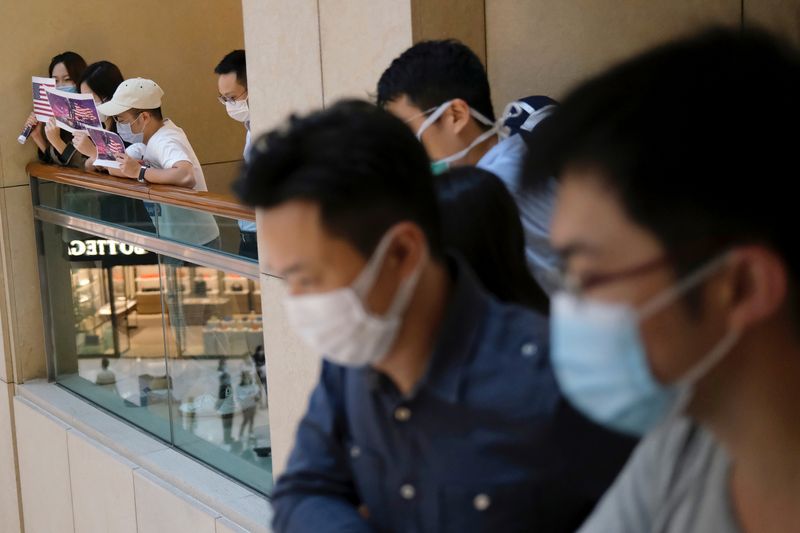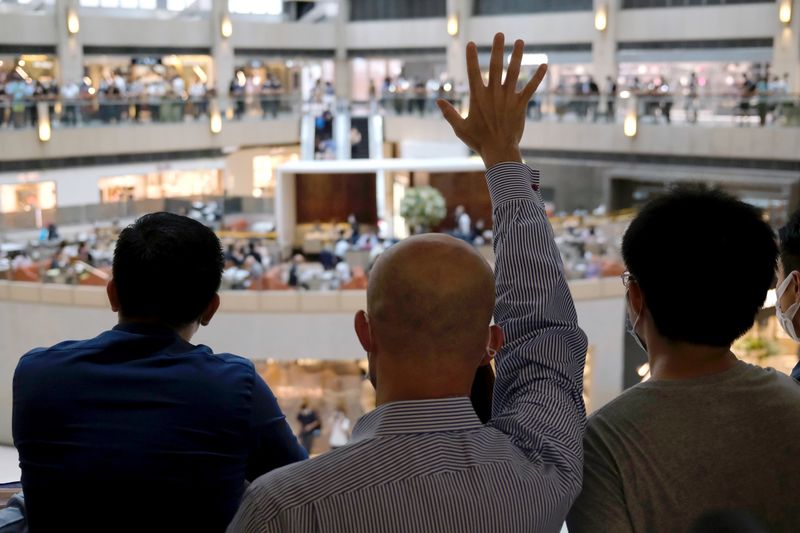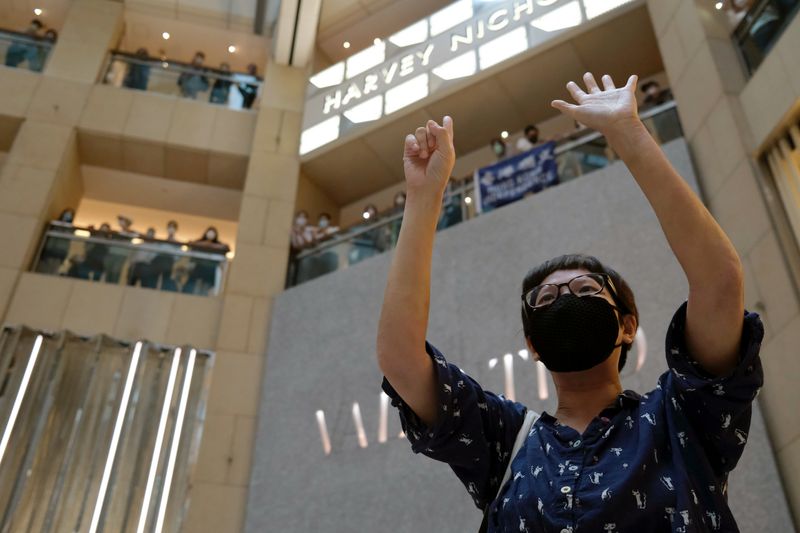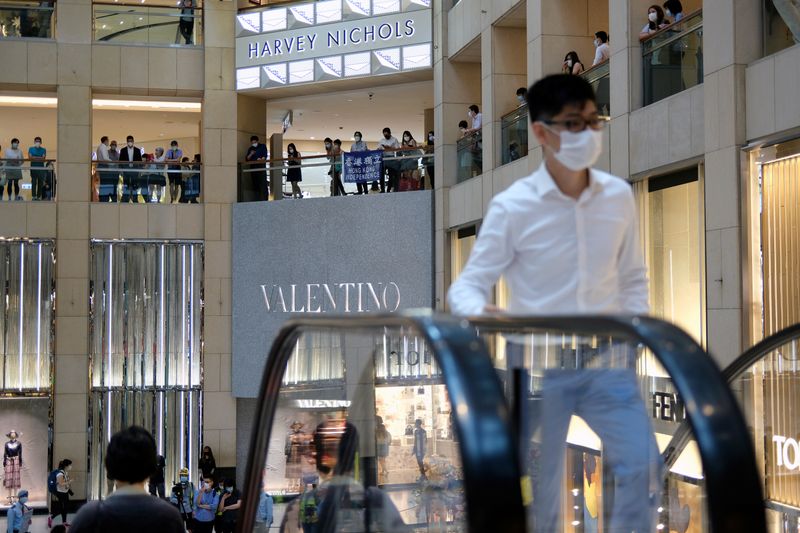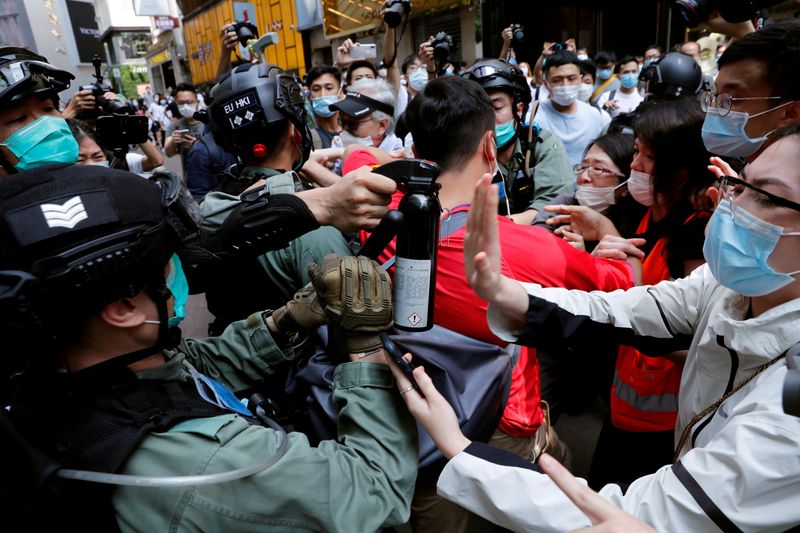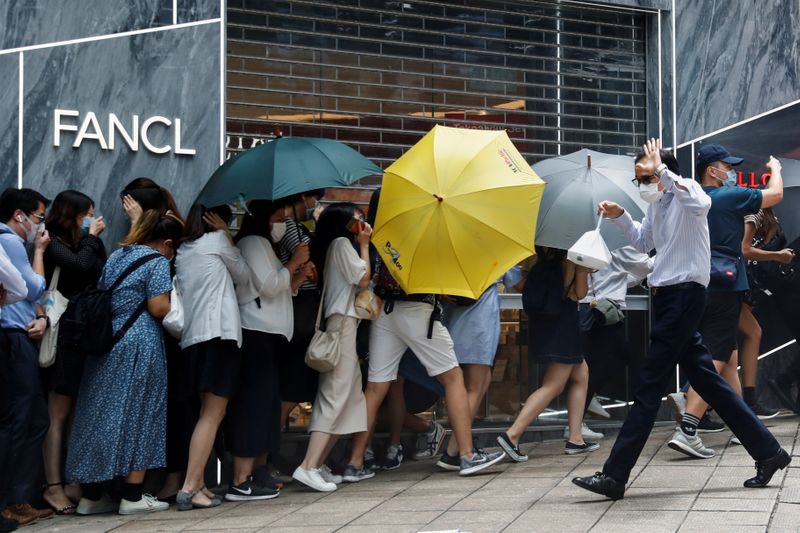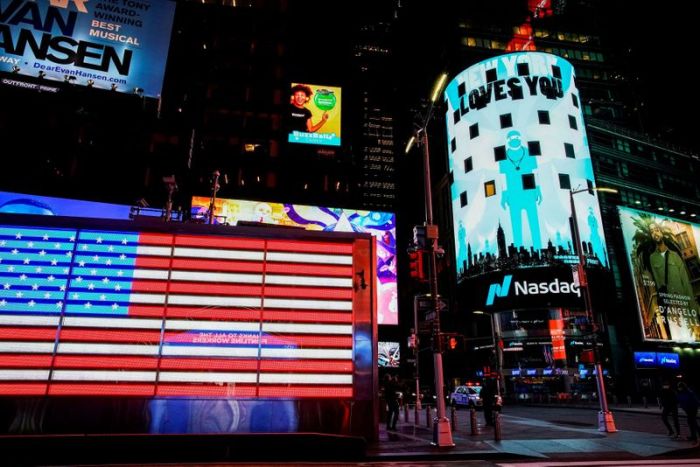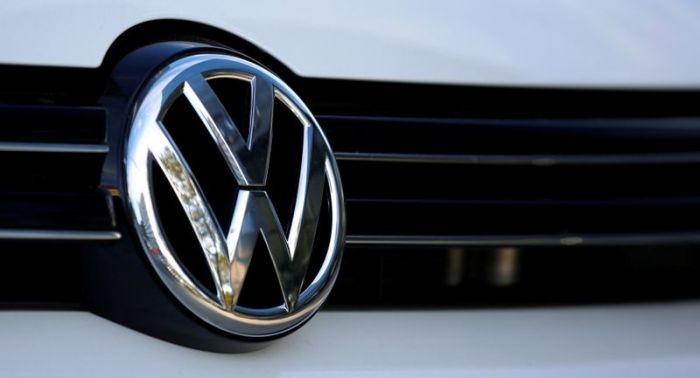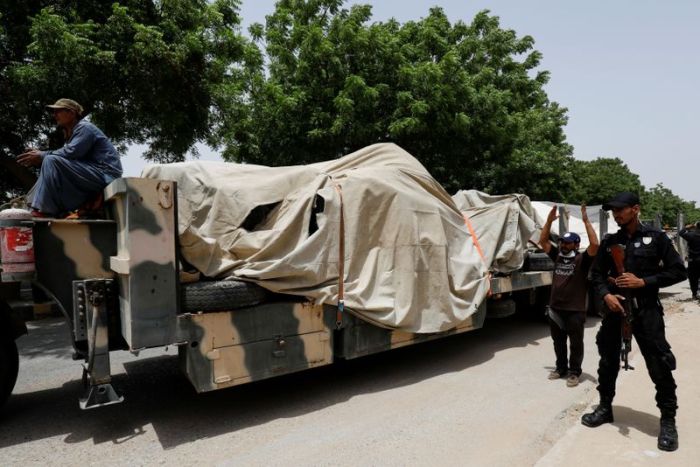HONG KONG/BEIJING/WASHINGTON (Reuters) – China’s parliament on Thursday approved a decision to go forward with national security legislation for Hong Kong that democracy activists and Western countries fear could erode the city’s freedoms and jeopardise its role as a global financial hub.
China says the new legislation will aim to tackle secession, subversion, terrorism and foreign interference in the city. But the plan, unveiled in Beijing last week, triggered the first big protests in Hong Kong for months.
Thursday’s move was quickly condemned by the United States, Britain, Australia and Canada. U.S. President Donald Trump’s economic adviser warned that Hong Kong, which has enjoyed special privileges under U.S. law based on its autonomy from Beijing, may now need to be treated like China when it comes to trade and other financial matters.
“We can’t let this go unnoticed and they will be held accountable for that,” Larry Kudlow told CNBC.
Trump, who has vowed a tough U.S. response, told reporters he would hold a news conference on China on Friday. “We’ll be making certain decisions and we’ll be discussing them tomorrow,” he said.
Under congressional legislation Trump signed last year, it now falls to him to decide to end some, all or none of the U.S. economic privileges Hong Kong enjoys.
Trump offered a muted response to Hong Kong’s mass democracy protests last year while prioritizing a trade deal with Chinese President Xi Jinping that Trump saw as important for his November re-election bid. But ties with Beijing have since soured considerably.
Chinese authorities and Hong Kong’s Beijing-backed government say there is no threat to the city’s autonomy, but critics say the security legislation will erode the high degree of autonomy the former British colony has enjoyed under a “one country, two systems” formula since it returned to Chinese rule in 1997.
Riot police were out in force in Hong Kong on Thursday as its lawmakers debated a bill to criminalise disrespect of China’s national anthem. Dozens of protesters chanted slogans in a shopping mall, but there was no repeat of disturbances the previous day when police made 360 arrests.
In Beijing, members of China’s mostly rubberstamp parliament burst into prolonged applause when a tally showed 2,878 votes to one in favour of moving forward with security legislation, with six abstentions.
Details of the law, which could see Chinese intelligence agencies set up bases in the city, are expected to be drawn up in coming weeks. It is expected to be enacted before September.
Chinese Premier Li Keqiang said it would be good for Hong Kong’s long-term stability and prosperity and the “one country, two systems” formula would remain a national policy.
TENSIONS
Beijing’s move comes as U.S.-China tensions have worsened amid mutual recriminations over the coronavirus pandemic, which began in China but has hit the United States hardest.
U.S. Secretary of State Mike Pompeo said on Wednesday Hong Kong no longer warranted special treatment under U.S. law, given the erosion of autonomy in the territory.
But it is far from clear that Trump will be prepared to take what analysts have called the nuclear option and completely end the special economic status Washington has conferred on Hong Kong since the end of British rule.
U.S. officials and people familiar with the discussions said the administration was crafting a range of options, including targeted sanctions, new tariffs and further restrictions on Chinese companies.
Two sources told Reuters on Thursday that Washington was also planning to cancel the visas of thousands of Chinese graduate students. {nL8N2DA4FT]
Trump’s actions may be tempered by concern for the more than 1,300 U.S. companies that have offices in Hong Kong and provide about 100,000 jobs. David Stilwell, the top U.S. diplomat for East Asia, said steps would be calibrated to mitigate the impact on Hong Kong people and U.S. businesses.
Democratic Senator Chuck Schumer blamed Trump for failing to stand up for Hong Kong, saying in a tweet: “Pres. Trump will forever be known as the president who lost Hong Kong to the Chinese Communist Party because of his mollycoddling of Pres. Xi.”
Democracy campaigners in Hong Kong were despondent.
“This is the death knell for Hong Kong, make no mistake of it, this is the end of ‘one country, two systems’ … the Hong Kong that we loved, a free Hong Kong,” said lawmaker Dennis Kwok.
(Reporting by Jessie Pang, Anne Marie Roantree, Donny Kwok, Noah Sin, Clare Jim, Sarah Wu, Lisa Lambert, Jeff Mason, Humeyra Pamuk, Matt Spetalnick and David Brunnstrom; Writing by Michael Perry, Marius Zaharia and David Brunnstrom; Editing by Stephen Coates, Robert Birsel, Sonya Hepinstall and Cynthia Osterman)

